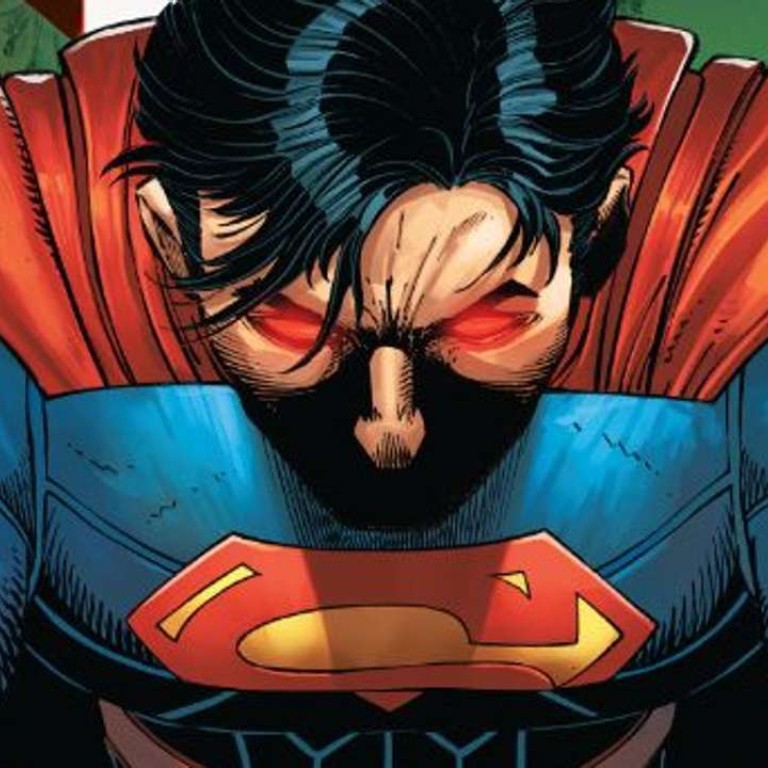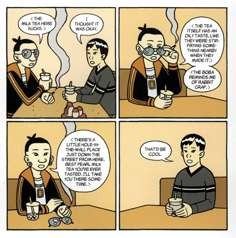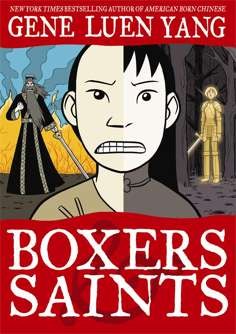
Is it a bird? Is it a plane? No, it’s a Chinese-American graphic novelist with his take on an icon of world culture
Gene Luen Yang has just written 10 issues of Superman, culminating in No. 50 last week. He reflects on what the experience has meant to him
Gene Luen Yang ended his 10-issue run writing the Man of Steel last week, as Superman’s 50th issue hits news stands virtual and physical.
The writer and two-time National Book Award finalist (American Born Chinese, Boxers & Saints) says the experience of writing a monthly superhero book was demanding, particularly because he comes from the world of graphic novels, yet fulfilled a long-standing professional dream.
“It was really a challenge, but also a learning experience,” says Yang, who was born in California to a mother from Hong Kong and a father from Taiwan. “I didn’t go in on my own. I was a part of a team with editors and writers who are much more experienced with (Superman) than I was. That was huge. That was an incredible help.”
SEE ALSO: Graphic novelist taps own life to win children’s literature prize
Creatively, Yang inherited a Superman who was disempowered to a degree. There was no secret identity that let Clark Kent take a break from the superman “S” and cape. There wasn’t even a cape. Even the S-curl had been buzzed off.
Despite that, Yang says the situations that his Superman/Kal-El/Clark Kent faced during this run were nothing that the hero hadn’t faced before.
“Superman is such an old character that he’s gone through these different eras,” Yang says. “He’s gone through eras when he was a lot less powerful than we think of him today. He’s gone through eras where he’s practically like God.

Eventually, as the covers for Yang’s Superman No. 50 reveal, Superman gets back to basics with his powers and returns to his more standard look. Yet Yang hopes his run shows that, despite Superman’s not being so super for the last 10 issues, there’s not much difference amid the heroics whether the character’s less-powerful or omnipotent.
“The theme was: the core of him doesn’t change, no matter how hard his life gets,” Yang says. “So what we ended up doing in (issue) 50 was sort of reinforcing that visually, by giving him his cape back, giving him his S-curl back. We’re visually saying: he didn’t really change throughout all the stuff that he went through. He didn’t change at the core of him.”
SEE ALSO: What would really happen if Batman took on Superman? We’re going to find out at last
Yang emphasises that the quick pace of writing a monthly comic is a drastic change from the pace at which he creates his acclaimed epics and other longer-form comics.
“It’s definitely more fast-paced than the graphic-novel world,” he says. “Monthly superhero comics run on this really crazy schedule. My graphic-novel stuff, I’ll finish the script, then I’ll do the art, and a year later it shows up on the shelf. With superhero comics, the turnaround is much quicker, and I have to say ‘hats off’ to the editors for being able to juggle all of that.
“I’m surprised editors can last more than five years at their job, just because things are so quick,” says Yang, laughing.

“There’s a theory that creativity is a muscle that responds to constraints, and having the constraints of the monthly schedule I think does unleash a certain kind of creativity. It makes you think on your feet,” Yang says. “I think it makes your subconscious work a little harder. I’ve had times when I’ve been working on Superman where I’ll go to sleep thinking about a problem, and when I wake up, a solution will be there.
“I really felt like, in terms of my creativity, it was definitely a workout.”
As for what themes Yang was drawn to, he views Superman as a form of American mythology. The writer says because Superman is from another world and he is fused with American society, scripting these books gave Yang the chance to organically incorporate Asian folklore into his tales.

“And also I just think that through comics, we are so familiar with European mythology, it just seems like it was time to bring in some other cultures stories as well.”
Yang says that Superman No. 50 will explore the superhero’s past, present and future.
“We hope that in some ways, it’ll be a fitting issue for Superman 50 – that the story will fit and that it will give you an overview of the character, and it’ll also return the character in some ways to the visual iconography that we all know and love,” Yang says.
SEE ALSO: How the Rape of Nanking inspired a Chinese-American graphic artist’s new novel
And Yang, who is the Library of Congress’s new ambassador for Young People’s Literature, underscores how exhilarating it was to script Superman. “This is something that I dreamed of doing ever since I was a little kid,” he says. “I feel incredibly lucky to have been able to do it, I’m grateful to the team I was able to work with, and I’m grateful to DC Comics for having the faith in me to have a go at it.”
Yang continues to create graphic novels, including a forthcoming one about a real-life high-school basketball team. So now that he’s written one of the most well-known comic characters, can he imagine putting himself through the monthly writing grind again?
“I do think that I’m intrigued by the challenges that monthly comics throw at you,” Yang says, “so I’m interested in continuing to explore that.”
The Washington Post

